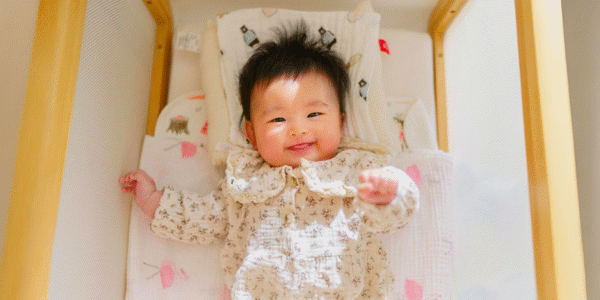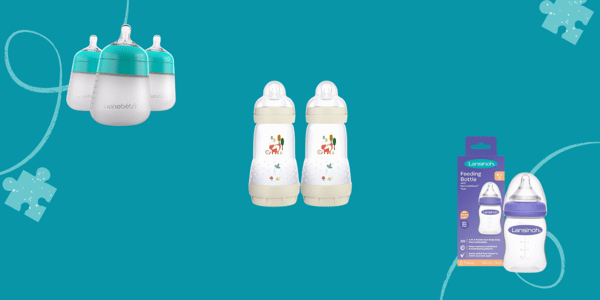As a new parent, you may find yourself torn between wanting to share your happiness with friends and family and keeping your little one as safe as possible. One of the most debated questions among new parents is whether to allow others to kiss their newborn.
Here’s a bit more information on letting family kiss your newborn, and some guidance on how to set boundaries while ensuring your baby's safety.
The Risks of Kissing a Newborn
Newborns have an immature immune system, making them particularly vulnerable to infections and illnesses. One of the primary concerns with allowing people to kiss your baby is the risk of transmitting germs. Common colds, flu, and other viral infections can be easily passed on through close contact with your little one. One particularly concerning virus is herpes simplex, which can cause cold sores in adults but be life-threatening to a newborn. The Lullaby Trust outlines these risks clearly in a recent study.
Herpes Simplex Virus (HSV) can be transmitted even when cold sores are not visible, making it a hidden danger. In severe cases, HSV can lead to neonatal herpes, which can cause serious health complications, including brain damage in serious cases. Therefore, it is crucial to be cautious about who gets close to your baby’s face, particularly their mouth and eyes.
Respiratory Syncytial Virus (RSV) is another virus that poses a risk to newborns. RSV is highly contagious and can lead to severe respiratory illness in babies, often requiring hospitalisation. Symptoms include coughing, wheezing, and difficulty breathing. Since RSV spreads through respiratory droplets, it can be transmitted through kissing.
Setting Boundaries to Family
As a parent, it is your responsibility to protect your newborn from potential harm, which can feel like a lot of pressure. Setting boundaries with family and friends might feel uncomfortable, but it is important for your baby’s health and safety. Here are some tips on how to set these boundaries effectively:
Communicate Clearly
Before your baby arrives, have a conversation with your close family and friends about your concerns and the boundaries you want in place. Explain the risks associated with kissing a newborn and why you prefer they refrain from doing so. Clear communication early on helps set expectations and reduces the likelihood of any misunderstandings cropping up.
Use a Polite but Firm Approach
When visitors come to see your baby, kindly remind them of your preferences. Phrases like, “We’re asking everyone not to kiss the baby to keep them safe from germs,” can be effective. Most people will understand and respect your wishes when they know the reasoning behind them.
Offer Alternatives
Instead of allowing kisses, suggest alternative ways for loved ones to show their affection. Gentle touches on the baby’s feet or back, or simply holding the baby’s hand, can be wonderful ways to bond without posing a risk. Even kisses on the tummy can be a safer alternative to near the face.
Keep up With Hygiene
Encourage all visitors to wash their hands thoroughly before holding or touching your baby. Hand sanitiser can be a convenient alternative to have by the sofa if easier than sending everyone off to the sink each time. Clean hands can significantly reduce the transmission of germs.
Dealing with any Pushback
Despite your best efforts, some people may still push back against your boundaries. It’s important to stay firm and prioritise your baby’s health. Here’s how to handle pushback effectively:
Stay Calm and Consistent
Respond to any resistance with calmness and consistency. Reiterate the reasons behind your rules and stand by them. Remember, you are your baby’s number one advocate.
Offer Education
Sometimes, providing a bit of education can help. Share articles or information from reputable sources that explain the risks associated with kissing newborns if you want to avoid family pushing your boundaries. This can help others understand that your concerns are based on medical advice and not just personal preference.
Seek Support
If certain individuals continue to disregard your boundaries, seek support from your partner or other family members on how to handle the situation going forward. Having someone else back you up can reinforce the importance of your rules and prevent any conflict adding stress to these important few weeks with your newborn.
Balancing Protection and Bonding
While it’s crucial to protect your baby from potential health risks, it’s also important to foster a loving and supportive environment for people to bond with your newborn.
Encourage family and friends to interact with your baby in safe ways. Reading stories, singing, and playing peek-a-boo are wonderful activities that can help build a bond without physical contact.
Keep a close eye on your baby’s health and be vigilant for any signs of illness. If your baby shows any symptoms of infection, always seek medical advice from your GP or call 111 for more advice.
Head here for more on taking you newborn out of the house safely.






